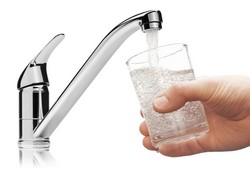Sensors to optimise water quality management in supply networks
The water sector has adopted the widespread use of information and communication technologies for planning and operations. However, they must comply with stricter legislation, safety regulations and environmental demands, all while meeting the needs of ageing infrastructure. The result has been a growing demand for real-time water management solutions. However, related technology does not fully satisfy the water sector's requirements for analysis, control and water management. Drawbacks with conventional probes include excessive energy consumption, fragility, high maintenance, lack of accuracy and electrolyte leakage. They also need to be calibrated manually in the laboratory. These technical drawbacks make the implementation of sensor grids very difficult and expensive. The EU-funded WIDESENS(opens in new window) (Water network sensors for widespread use) project aimed to overcome these challenges by developing and powering arrays of low-cost sensors for deployment in remote locations. Project partners developed, implemented and tested a multiparametric probe based on unconventional sensors that will be economically viable for widespread use in water networks. They built three functional prototypes that were validated in a Spanish city's drinking water network. The probe measures pH, conductivity, bio-fouling, redox potential and chlorine for evaluating water quality. It also measures pressure for assessing service quality and leak detection. The cost- and energy-efficient probe is easy to install and requires little maintenance. The WIDESENS team also developed a wired and wireless telecommunications system and accompanying processing and data acquisition software. Water utilities and water authorities stand to benefit from WIDESENS. In addition to improving water management processes, it will ensure safer water for consumers and lower environmental impacts due to reduced chlorination and better water preservation.







